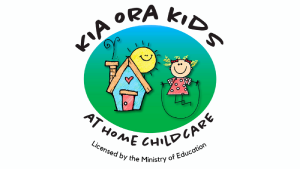As a parent, nothing matters more than giving your child the best possible start in life. In New Zealand, we’re fortunate to have access to 20 Hours Free Early Childhood Education (ECE) — a government-funded initiative that offers eligible children aged 3 to 5 up to 20 hours of free early learning every week.
For many families, this means significant financial relief. But at Kia Ora Kids, we believe these free hours are much more than just a cost-saving benefit. They represent a powerful opportunity to invest in your child’s emotional, social, and intellectual growth during their most critical developmental years.
The Real Benefits Behind the “Free” Hours
Children’s early years — especially from birth to age five — are widely recognized as a crucial period for brain development. During this time, children develop the foundations for language, problem-solving, emotional intelligence, and physical coordination. Access to high-quality ECE during this window of opportunity can have lifelong positive impacts.
Research has consistently shown that children who participate in early learning programs for 20+ hours a week are more likely to:
- Build stronger social and emotional skills, such as empathy, resilience, and cooperation
- Establish early literacy and numeracy foundations
- Transition smoothly into primary school and succeed academically (Bird et al., 2016)
These benefits are even more pronounced when children are cared for in high-quality, supportive environments that meet their individual needs. That’s exactly what we provide at Kia Ora Kids.
Why Kia Ora Kids Is the Ideal Place to Use Your Free Hours
At Kia Ora Kids, we offer home-based childcare that blends the warmth of a family setting with the structure of a professional early learning environment. Our qualified educators care for no more than four children at a time, ensuring your little one receives the individual attention and love they deserve.
Here’s what makes our home-based program stand out:
- ECE-qualified educators: Trained professionals who understand how to support your child’s learning and wellbeing.
- Tailored learning plans: Each child receives an individual educational plan based on their interests and development stage.
- Rich, play-based activities: From painting and baking to singing, dancing, and gardening, every day is filled with meaningful play that supports learning.
- Real-world exploration: Children enjoy regular outings to parks, libraries, beaches, and bush walks to connect learning with the wider world.
- Te Whāriki curriculum: Our educators are guided by New Zealand’s national early childhood curriculum, ensuring cultural responsiveness and holistic development.
We go beyond simply “watching” children — we foster their sense of identity, curiosity, confidence, and joy in learning.
Quality Matters — Not All ECE Is Created Equal
While the 20 Hours Free ECE is available at many centers, not all ECE experiences are the same. Some providers treat it as basic supervision. We treat it as precious, formative time that lays the foundation for a lifetime of learning.
Our small group size means educators can adapt activities and interactions to suit each child’s learning style and personality. Plus, our visiting teachers provide ongoing mentoring and support to ensure the quality of care stays high and that every child’s learning journey is progressing.
As a result, children in our care don’t just meet milestones — they flourish.
Support for Busy Families
We understand that families have unique needs and schedules. Whether you’re a full-time professional, a part-time worker, or just looking for structured socialization and development for your child, Kia Ora Kids offers flexible care options.
You can choose how many days and hours suit your lifestyle, and you can use your 20 Hours Free ECE in the way that best works for you. Need more than 20 hours? We offer affordable additional hours, and many families also qualify for WINZ subsidies, helping to reduce costs even further.
And it’s not just about childcare — it’s about empowering families. Research shows that mothers with two or more children in ECE are more likely to return to work and increase household income, creating lasting benefits for the entire family (Bouchard et al., 2020).
A Window of Opportunity You Don’t Want to Miss
By the time a child turns five, their brain has developed nearly 90% of its adult capacity. These years are packed with potential — and how that potential is nurtured makes all the difference.
The 20 Hours Free ECE policy is designed to level the playing field, ensuring all children in New Zealand — regardless of income or background — have access to learning and care during this crucial stage.
At Kia Ora Kids, we take that mission seriously. We don’t just offer access — we offer excellence.
Why Families Choose Kia Ora Kids
Every family has their own reason for choosing Kia Ora Kids. For some, it’s the peace of mind that comes from knowing their child is in a safe, loving, and enriching home environment. For others, it’s the flexible hours, the strong relationships with educators, or the holistic learning program that keeps them coming back.
Here’s what you can expect:
- Small, nurturing groups with a 1:4 ratio
- Passionate and qualified educators
- Personalized educational plans and development portfolios
- Culturally inclusive practices
- Convenient Auckland-wide locations
Make the Most of Your 20 Hours Free ECE With Kia Ora Kids
Your child’s early years only happen once — and how they spend those years matters.
At Kia Ora Kids, we’re not just offering childcare. We’re offering your child a place to grow, explore, and thrive. Book a visit today to learn how Kia Ora Kids can turn those 20 Hours Free ECE into something truly special.
References:
- Bird, A., Carr, P., Reese, E., & Morton, S. (2016). Policy translation for early childhood education and care: the Growing Up in New Zealand approach. International Journal of Child Care and Education Policy, 10, 1-18.
- Bouchard, I., Cheung, L., & Pacheco, G. (2020). Evaluating the impact of 20 hours free early childhood education on mothers’ labour force participation and earnings. New Zealand Economic Papers, 55, 188 – 202.

